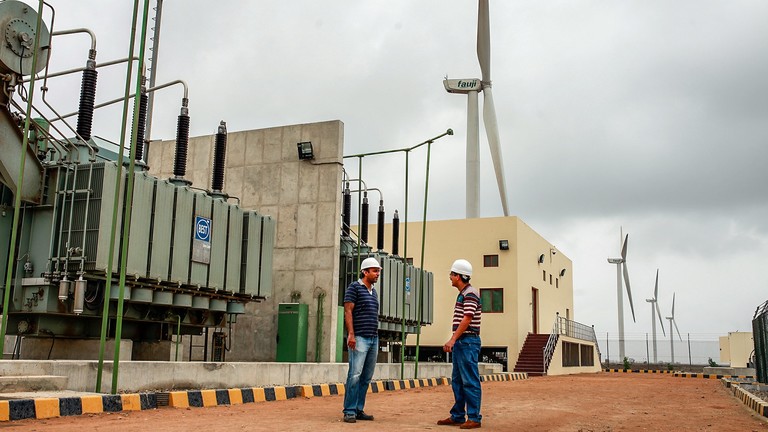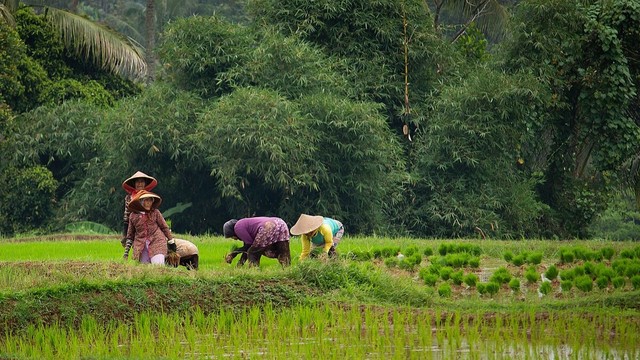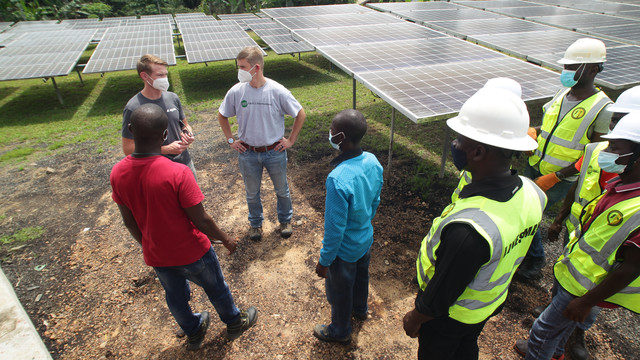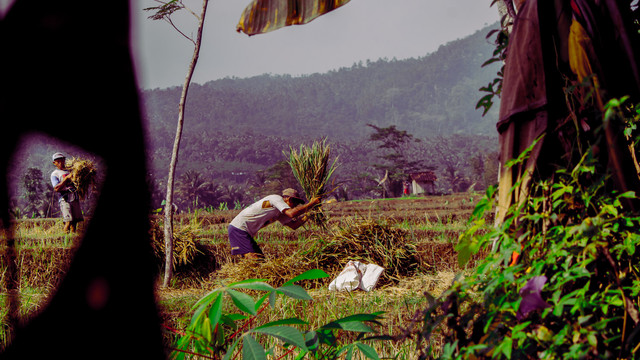What does justice mean for the energy transition and how do we achieve it?
This IIED Debates on Thursday, 16 November, explored differing concepts and operational approaches to justice in energy transitions across sub-Saharan Africa and Asia.

Two engineers at a wind power generation plant located in KhuttiKun New Island, Taluka Mirpur Sakro, Pakistan (Photo: Asian Development Bank, via Flickr, CC BY-NC-ND 2.0
Many of the millions of people who remain in energy poverty are also highly vulnerable to the impacts of climate change and intersecting crises. In the effort to provide universal clean and affordable energy and increase climate resilience, we are seeing an increased emphasis on achieving a just and inclusive energy transition.
Focusing on countries in sub-Saharan Africa and Asia, this online event explored what a 'just transition' to renewable energy means for those working within the energy sector as well as those who remain in energy poverty. Particpiants debated the practical implications for international, national and community level delivery processes, and associated finance mobilisation.
To make faster progress in decarbonising energy production and use there have been big budget announcements on Just Energy Transition Partnerships (JETPs), with an initial commitment of US$8.5 billion for South Africa at COP26, and $20 billion for Indonesia at the G20 meeting in November 2022. The COP28 presidency has emphasised that 'fast-tracking the just, equitable and orderly energy transition’ is central to the outcomes of the upcoming climate negotiations.
Yet there is a lack of agreement on what a just transition means for the energy sector – including whether ‘justice’ should focus on those working within the energy sector, or those impacted by a move to renewables such as in and around wind farms. More broadly there are justice questions for the 733 million globally without access to electricity and over 2.4 billion relying on solid biomass for cooking, largely in Africa and Asia.
This online IIED Debates event, hosted in partnership with the Alliance of CSOs for Clean Energy Access (ACCESS) and Loughborough University, brought together leading thinkers working on energy issues to explore what a just energy transition could mean, beyond reducing emissions and NetZero targets. Speakers considered the wider focus of uptake and use of renewable energy as part of climate-resilient development.
Using different country context examples and bringing in a range of stakeholder perspectives, we will scope how the ‘just transition’ concept can increase equity and justice both within the energy sector and more widely in energy use as part of moving to low-carbon economies. We will also discuss the types of approaches to operationalise a just energy transition, from the JETPs being debated and negotiated at COP, to national and community-level processes that can fundamentally drive social acceptance of the transition.
This event built on conversations on energy justice and inclusion from workshops and events in Kenya, Nigeria, South Africa, and Indonesia – as well as an IIED Debates event on the gender dimension of the just transition.
About the speakers
- Ben Garside is a principal researcher at IIED and leads IIED's work on energy access and renewable energy
- Thando Lukuko is coordinator for Climate Action Network South Africa (SACAN)
- Dr. Marlistya Citraningrum is the sustainable energy access program manager for the Institute for Essential Services Reform (IESR)
- Adenike Abimbola is a senior assistant, research and data at the Nigeria Energy Transition Office, SEforALL
- Emmanuel Cyoy is a sustainable energy and climate resilience expert and the Energy Delivery Models (EDM) lead in Kenya
- Somkele Awa-Kalu is a finance specialist in the energy transition office in Nigeria, SEforALL
Coverage
You can watch a recording of the event below or on IIED's YouTube channel, where individual links to the start of each speaker's contribution are also provided.
About IIED Debates
This event was part of the IIED Debates series. Through the convening of expert speakers and external stakeholders, IIED brings together an international community to discuss critical issues.
IIED Debates encompass both physical and digital events, including critical themes, breakfast debriefs and webinars. These events are public and are hosted regularly throughout the year online and when possible in our London and Edinburgh offices.
IIED events newsletter
Sign up to our mailing list for updates and invitations to events throughout the year, including webinars, critical themes and debriefs.
Contact
Juliette Tunstall (juliette.tunstall@iied.org), internal engagement and external events officer at IIED



